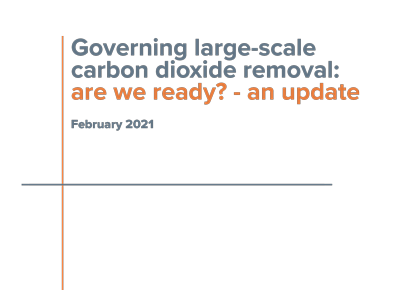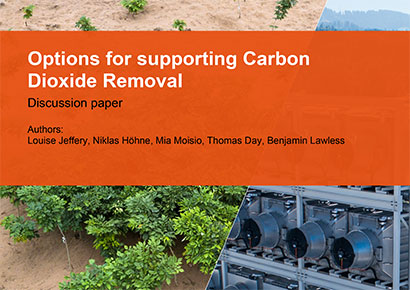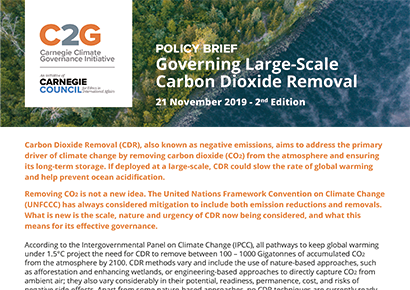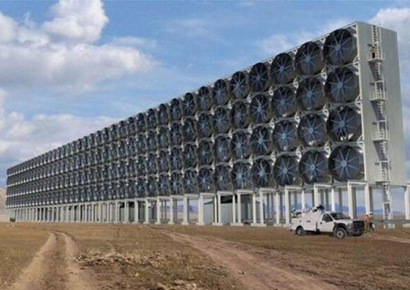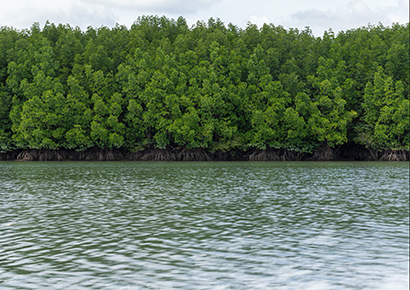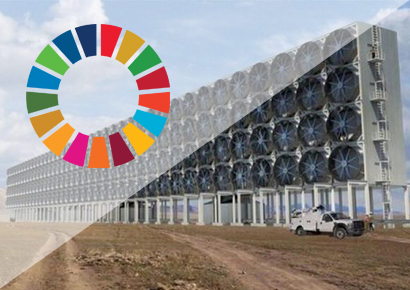C2GLearn
Large-scale Carbon Dioxide Removal:
Gaps in governance
This topic aims to inform climate change professionals on the existing international processes that address the governance of Carbon Dioxide Removal (CDR) approaches. It will identify governance gaps that may need to be addressed to maximise positive impacts and minimise negative trade-offs, as well as governance priorities that may be addressed in the near term.
Webinars
This webinar aimed to inform climate change professionals on the existing international processes that address the governance of CDR. It identified governance gaps and challenges that exist for large-scale CDR, and governance priorities that need to be addressed in the near term to maximise positive impacts and minimise negative trade-offs in limiting warming to 1.5°C. It was followed by a half hour moderated Q&A session, during which audience members were invited to submit written questions via the Zoom chat. Speakers included:
Claire Fyson / United Kingdom
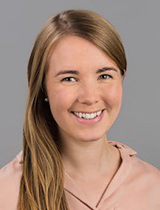
M.J. Mace / United States of America
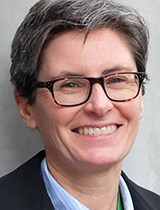
Moderator: Nicholas Harrison / United Kingdom
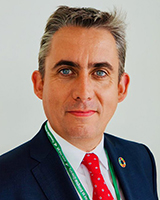
Prior to joining C2G, Harrison served as an adviser on climate action in the Executive Office of the United Nations Secretary-General, supporting delivery and ratification of the Paris Agreement on climate change. Before this, as a senior consultant at Ecofys, he coordinated global teams of experts delivering high-profile international research assessments and analysis on climate change, sustainable energy, and low emissions development
In previous roles, Harrison served as an adviser on climate change and strategic intelligence for the UK Department of International Development, Department of Communities and Local Government, and the Office of the Deputy Prime Minister. He began his career in environmental engineering, moving into communications to promote renewable energy technologies, followed by various roles in city, regional, and national government, improving the use of data and evidence to deliver more sustainable development.
Harrison has written and presented widely on climate change and sustainable development, served on the Sustainable Communities committee of the British Standards Institution (BSI) and worked extensively to promote integrated multi-level governance and the role of cities, states, and other non-state actors in climate action.
He holds an MSc in organisational psychology from City University, London, is a fellow of LEAD International and the Norfolk Charitable Trust, and is an independent expert for the Climate KIC, Europe’s largest public-private innovation partnership focused on climate innovation to mitigate and adapt to climate change.
Introduction
Presentations
Slide presentation
- Claire Fyson and M.J. Mace Large-Scale Carbon Dioxide Removal: Gaps in Governance [pdf]
Q&A (Webinar 1)
Q&A (Webinar 2)
Campfire Chat
This Campfire Chat aims to provide insights into diverse viewpoints on the gaps in governance for large-scale carbon dioxide removal (presented in the webinar above), in a relatively informal, moderated, semi-structured discussion between experts. Audience members are invited to suggest topics via the Zoom chat. Guests include:
Bill Hare / Australia
 Bill Hare is a physicist and climate scientist with 30 years’ experience in science, impacts and policy responses to climate change and stratospheric ozone depletion. He is a founder and CEO of Climate Analytics, which was established to synthesise and advance scientific knowledge on climate change and provide state-of-the-art solutions to global and national climate change policy challenges.
Bill Hare is a physicist and climate scientist with 30 years’ experience in science, impacts and policy responses to climate change and stratospheric ozone depletion. He is a founder and CEO of Climate Analytics, which was established to synthesise and advance scientific knowledge on climate change and provide state-of-the-art solutions to global and national climate change policy challenges.
Bill has contributed actively to the development of the international climate regime since 1989, including the negotiation of the 1992 UN Framework Convention on Climate Change, the 1997 Kyoto Protocol, and the Paris Agreement in 2015. Throughout this time supported international and regional scientific assessment processes, including the IPCC, in different capacities to the present time.
He was a Lead Author for the Intergovernmental Panel on Climate Change (IPCC) Fourth Assessment Report, for which the IPCC was awarded the Nobel Peace Prize in 2007. He led the influential World Bank Turn Down the Heat reports series in 2013-2014, and has authored, or co-authored, many peer-reviewed articles in leading academic journals including Nature Climate Change, Nature, Climatic Change, Regional Environmental Change, and Climate Policy.
Bill has regularly advised and presented science and policy assessments to Ministers and Heads of Government from the most vulnerable countries. One of the key projects he is directing at present is the IMPACT Project, which is developing new scientific tools to help small island states (SIDS) and the least developed countries (LDCs) in West Africa respond to the impacts of climate change, as well as providing scientific support for delegations from these countries in the international climate negotiations implementing the Paris Agreement. Bill has been described as “the physicist who has become a go-to climate adviser for dozens of poor nations” and supports and advises ministers from Small Island Developing States and Least Developed Countries in the context of the UNFCCC climate negotiations.
He is also one of the leaders of the Climate Action Tracker, recognised as one of the most credible sources of information on national and global action on climate change.
Bill is a graduate of Murdoch University in Western Australia, now Adjunct Professor, Murdoch University, School of Engineering, Perth Western Australia and a visiting scientist at the Potsdam Institute for Climate Impact Research.
Julio Cordano / Chile
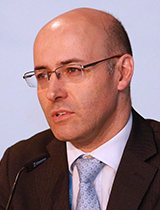
Paul Watkinson / France
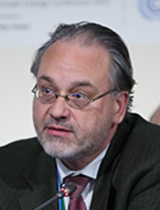
An experienced international negotiator, he has a detailed knowledge not just of the technical issues but also of the negotiating mechanics, the key actors, and the workings of the UN Climate Convention, the Kyoto Protocol, and the Paris Agreement. He has long experience of running teams in a project mode, drawn from different ministries or even countries.
At the end of the UN Climate Conference in Bonn, in November 2017, he was elected Chair of the Subsidiary Body for Scientific and Technological Advice (SBSTA) for the coming year and a member of the bureau of COP23.
Between 2014 and 2016 he was a member of the management group of the French interministerial team that prepared and ran COP21 in 2015 with responsibility for coordinating the negotiation of the Paris Agreement.
He was one of the European Union’s lead negotiators from 2009 to 2014 at the conferences of Copenhagen, Cancun, Durban, Doha and Warsaw, focusing on finance, adaptation, capacity building and the way in which climate policies interact with trade and impact third parties.
He chaired the European Union’s climate change working party during COP14 in Poznan during the French EU Presidency in 2008.
Before working on climate issues for the French government he worked at the Environment Directorate of the OECD and before that in London on environmental and other issues. He studied at the Ecole nationale d’administration and at Cambridge University.
Stephan Singer / Germany

Singer has spent the last 23 years with WWF Germany, WWF Europe and WWF International. His last role, starting in 2009, was ‘Director Global Energy Policy’.
He has a PhD in soil physics on carbon and nitrogen dynamics in poverished Indian soils. Before joining WWF he was a strong anti-nuclear activist in Germany, a journalist, and he also worked for four years for GIZ in India and Kenya on poverty alleviation with subsistence farming in semi-arid tropics.
Singer has been driving the global move to 100% renewables in WWF for the past few years. He is a strong supporter of a Just and Fair Transition to 100% Renewables in all countries, coupled with significant public and private financial shifts away from fossil fuels and nuclear, towards a much more equitable world.
His work includes providing support and advise to CAN member organisations on renewable energy expansion in all countries, which is a prerequisite to staying below 1.5°C.
Singer is a regular and invited peer-reviewer of the annual IEA World Energy Outlook, a regular CSO reviewer of some of the IPCC work (WG III, mitigation), and chairperson of the Renewable Grid Initiative (RGI) in Europe.
Thelma Krug / Brazil
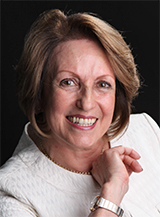 Thelma Krug is a former researcher at the Earth Observation Coordination at the National Institute for Space Research in Brazil, under the Ministry of Science, Technology, Innovation and Communication (MCTIC). She was elected Vice-Chair of the Intergovernmental Panel on Climate Change (IPCC) for the Sixth Cycle of Panel (October 2015 – October 2022), after having been co-chair of the IPCC Task Force on National Greenhouse Gas Inventories from 2002 until 2015. She holds a PhD on Spatial Statistics from the University of Sheffield, UK. She has been Deputy National Secretary at the Secretary on Policies and Programs of Science and Technology at MCTIC; National Secretary at the Secretary on Climate Change and Environmental Quality from the Ministry of the Environment (MMA) and Director of the Department on Policies to Combat Deforestation under the Secretary of Climate Change and Forests at MMA. For more than 15 years she represented Brazil in the negotiations at the United Nations Framework Convention on Climate Change (UNFCCC), with particular focus on issues related to land use, land-use change and forestry (LULUCF); research and systematic observations; and reporting guidelines. Her main areas of interest are climate change and the role of deforestation, forest degradation and land-use change; REDD+; and national greenhouse gas inventories.
Thelma Krug is a former researcher at the Earth Observation Coordination at the National Institute for Space Research in Brazil, under the Ministry of Science, Technology, Innovation and Communication (MCTIC). She was elected Vice-Chair of the Intergovernmental Panel on Climate Change (IPCC) for the Sixth Cycle of Panel (October 2015 – October 2022), after having been co-chair of the IPCC Task Force on National Greenhouse Gas Inventories from 2002 until 2015. She holds a PhD on Spatial Statistics from the University of Sheffield, UK. She has been Deputy National Secretary at the Secretary on Policies and Programs of Science and Technology at MCTIC; National Secretary at the Secretary on Climate Change and Environmental Quality from the Ministry of the Environment (MMA) and Director of the Department on Policies to Combat Deforestation under the Secretary of Climate Change and Forests at MMA. For more than 15 years she represented Brazil in the negotiations at the United Nations Framework Convention on Climate Change (UNFCCC), with particular focus on issues related to land use, land-use change and forestry (LULUCF); research and systematic observations; and reporting guidelines. Her main areas of interest are climate change and the role of deforestation, forest degradation and land-use change; REDD+; and national greenhouse gas inventories.Moderator: Janos Pasztor / Hungary & Switzerland
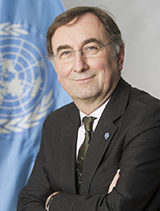
He has four decades of work experience in the areas of energy, environment, climate change, and sustainable development. Before taking up his current assignment he was UN Assistant Secretary-General for Climate Change in New York under Secretary-General Ban Ki-moon.
Earlier, he was Acting Executive Director for Conservation (2014), and Policy and Science Director (2012-2014), at WWF International. He directed the UNSG’s Climate Change Support Team (2008-2010) and later was Executive Secretary of the UNSG’s High-level Panel on Global Sustainability (2010-2012). In 2007 he directed the Geneva-based UN Environment Management Group (EMG). During 1993-2006 he worked and over time held many responsibilities at the Climate Change Secretariat (UNFCCC), initially in Geneva and later in Bonn.
His other assignments included: the Secretariat of the UN Conference on Environment and Development (Earth Summit ’92); Stockholm Environment Institute; United Nations Environment Programme (UNEP); Secretariat of the World Commission on Environment and Development (Brundtland Commission); the Beijer Institute; and the World Council of Churches.
He has BSc and MSc degrees from the Massachusetts Institute of Technology (MIT).
C2G strives to achieve a diversity of views and backgrounds across all its events. To that end, it is always open to feedback and suggestions regarding future participants and topics, to ensure a range of perspectives by sector, gender, race, geography, age and other dimensions. It will not always achieve the necessary diversity in all circumstances due to issues of availability and familiarity, but aims over time to expand the range of contributors able to address its issues, subject to the broad principles outlined in its mission statement.
